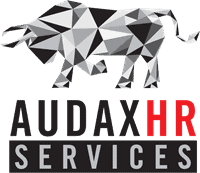It is safe to say that technology effect every one of us in our daily lives and that includes our work lives too. Can you remember life before the Internet, Facebook and LinkedIn?
What are some of the current technological trends that will be effecting our work lives?
In 2018, the physical and digital worlds will continue to merge, as the workplace is reshaped by artificial intelligence (AI), bots, predictive software and augmented reality.
Start by accepting that AI will mold the organizational landscape, especially as intelligent systems learn to adapt to users’ needs. We’ll no longer need to learn the software, AI is already learning more about our individual roles, behaviors and actions to personalize how we use HR and other business software.
Enterprise platforms will also evolve to provide more natural and immersive interactions, according to the Top 10 Strategic Technology Trends for 2018 report from the research firm Gartner.
Such advancements will allow HR professionals to significantly reduce learning and development budgets and resources, as technologies are adopted that can contextually guide people on how to use any system.
Blockchain
This technology holds promise for recruiters hoping to verify candidates more efficiently, and for payroll managers who want to make their organization’s global compensation process less costly and more timely. Blockchain uses an encrypted, digital ledger of public records structured into clusters of data called blocks and dispersed over networks. It is a powerful tool that users find reliable and easy to navigate. Experts predict HR will begin using blockchain within the next 18-24 months.
AI foundation
Making systems that learn, adapt and act autonomously will be a major focus for technology vendors through at least 2020. AI will be used to improve decision-making, reinvent work processes and revamp the customer experience. It will drive the return on investment for digital business plans through 2025.
Intelligent apps and analytics
Companies are using AI practices to make new app categories, such as virtual customer assistants and bots to improve employee performance, sales and marketing analysis and security. Intelligent apps have the potential to change the nature of work and the structure of the workplace.
Internet of Things (IoT)
AI is driving advances for “smart” items such as autonomous vehicles, robots and drones. It is also enhancing many existing products, including Internet-of-things (IoT)-connected consumer and industrial systems. At some point, for instance, HR professionals will need to hire individuals who can operate drones, monitor drone safety and comply with FAA regulations.
Digital twins
This tool is a digital representation of a real-world entity or system. Data from multiple digital twins can be aggregated for a composite view across real-world entities. For example, future models of humans could offer biometric and medical data, and digital twins will allow for advanced simulations, the report explains. Digital twins in the context of IoT projects could significantly improve enterprise decision-making by helping users respond to changes, improving operations and enhancing performance.
Conversational platforms
Think Alexa or Siri. Within HR, such programs could be applied to improve employee self-service by enabling employees to “talk” to members of your team. These tools will drive the next big paradigm shift in how humans interact with the digital world. As the technology matures, “extremely complex requests will be possible, resulting in highly complex results,” the report states.
How can HR leaders respond to these technological advancements?
- Devise business scenarios using AI to inform new business designs.
- Create a more natural and immersive user experience with conversational platforms and augmented reality.
- Support IoT initiatives by developing and prioritizing targeted, high-value business cases to build digital twins and exploit cloud and edge computing synergistically.
- Adopt a strategic approach to security and risk that continuously adapts based on risk and trust.
If you don’t factor these technology trends into your innovation strategies, you risk losing ground. 2018 will be a watershed year for HR, because time-saving technology will free up HR teams to serve as strategic advisors within their organizations.
Digital transformation starts with understanding your employees. HR will play a pivotal role in aligning company culture, talent, structure and processes to make sure that businesses select the right tools for delivering the best employee digital experience.
What are the predictions for this brave new world?
Here’s what lies ahead:
By 2019
- Most leading digital asset and product information management systems will implement features that allow brands to automatically expose tags and metadata to improve voice and visual search results.
- Half of all major companies and retailers will redesign their online sites to accommodate voice searches and voice navigation. Job boards and recruiters may follow suit. Talent search engines are already working on tools to help recruiters find and contact candidates or specific roles by allowing them to pose voice-based search queries.
By 2020
AI-driven creation of fake content will outpace AI’s ability to detect it, which could fuel distrust and the proliferation of misinformation.
By 2021
More than 50 percent of companies will spend more per year creating bots and chatbots than on traditional mobile app development.
Most people in stable economies will consume more false information than true content.
By 2022
Half of all security budgets for the Internet of Things (IoT) will be directed toward “fault remediation, recalls and safety failures,” rather than protection.


